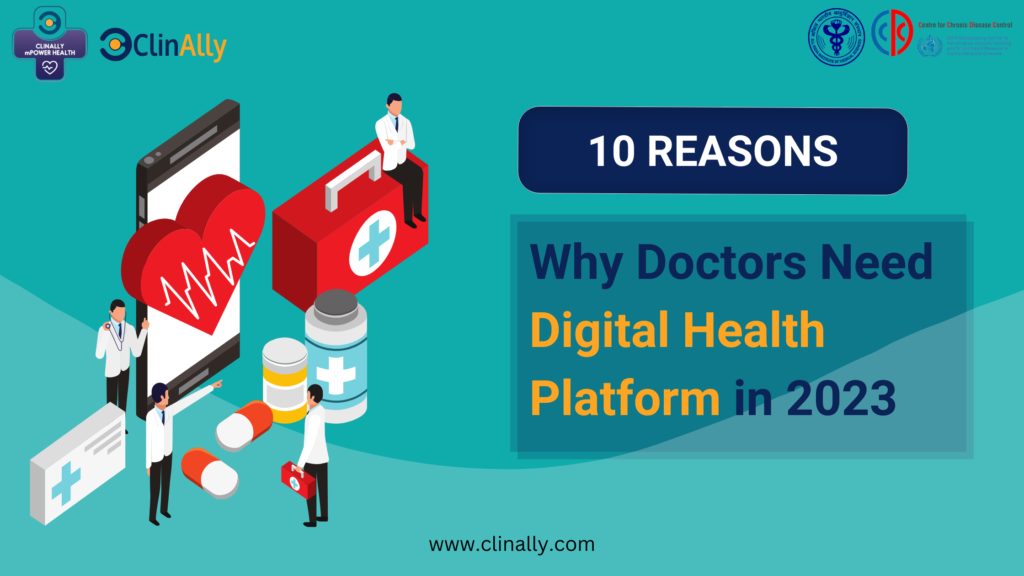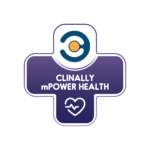10 Reasons Why Doctors Need Digital Health Platform in 2023

Introduction
In today’s fast-paced world, the use of technology has become increasingly essential in many industries. The healthcare industry is no exception, and the trend towards digitalization is rapidly gaining momentum. In the past, the healthcare system was heavily reliant on paper-based records and in-person consultations. But with the rise of digital technology, it has become possible to revolutionize the way doctors provide care to their patients. From electronic medical records (EMRs) to telemedicine and wearable devices, technology has the potential to transform the way doctors practice medicine. Digital health platforms provide a wealth of benefits to both doctors and patients, making them an increasingly important tool in the world of medicine.
In this article, we’ll explore 10 reasons why doctors need digital health platform in 2023.
1. Improved Patient Care: One of the biggest benefits of digital health platforms for doctors is the ability to provide better care for their patients. With the use of electronic health records (EHRs), doctors have access to a complete and up-to-date record of a patient’s medical history, including past treatments and medications. This information can be used to make more informed diagnoses and treatment decisions, leading to improved patient outcomes.
2. Increased Efficiency: Digital health platforms can also help doctors to be more efficient in their work. By using electronic prescriptions, for example, doctors can quickly and easily prescribe medications to their patients without the need for paper-based prescriptions. This not only saves time but also helps to reduce errors and ensure that patients receive the correct medication in a timely manner.
3. Better Communication: Another important benefit of digital health platforms is the ability to communicate more effectively with patients. With the use of telemedicine, doctors can provide remote consultations to their patients, saving time and reducing the need for patients to travel to the doctor’s office. Additionally, digital health platforms can provide secure messaging systems for doctors and patients to communicate, allowing for a more efficient and convenient exchange of information.
4. Better collaboration: Digital tools allow for real-time communication and collaboration between healthcare professionals, making it easier to coordinate patient care and share information. This can result in improved patient outcomes and reduced medical errors.
5. Increased accessibility: With telemedicine, patients can receive medical care from the comfort of their own homes, reducing the need for in-person visits and increasing access to healthcare for those living in rural or underserved areas.
6. Enhanced patient engagement: Digital tools can empower patients to take a more active role in their own health. From tracking their own health data to connecting with healthcare professionals via telemedicine, patients can become more engaged and informed participants in their own care.
7. Improved data management: Digital tools can help healthcare providers manage and analyze large amounts of patient data, leading to better understanding of population health and improved decision-making.
8. Better patient outcomes: With access to more accurate and up-to-date patient information, doctors can make more informed treatment decisions, leading to improved patient outcomes.
9. Increased satisfaction: By utilizing digital tools, doctors can provide higher-quality care, leading to increased patient satisfaction and a better reputation for their practice.
10. Staying competitive: As digitalization continues to gain momentum in the healthcare industry, doctors who embrace technology will be better positioned to remain competitive and meet the needs of their patients.
Also Read : Requirement of Clinical Decision Support System (CDSS) in India
Conclusion
In conclusion, the trend toward digitalization in healthcare is rapidly gaining momentum and presents numerous benefits for both patients and healthcare providers. From improved patient care to increased efficiency and accessibility, the use of digital tools has the potential to transform the way doctors practice medicine. As such, it’s important for doctors to consider going digital and embrace the many benefits that technology has to offer.


